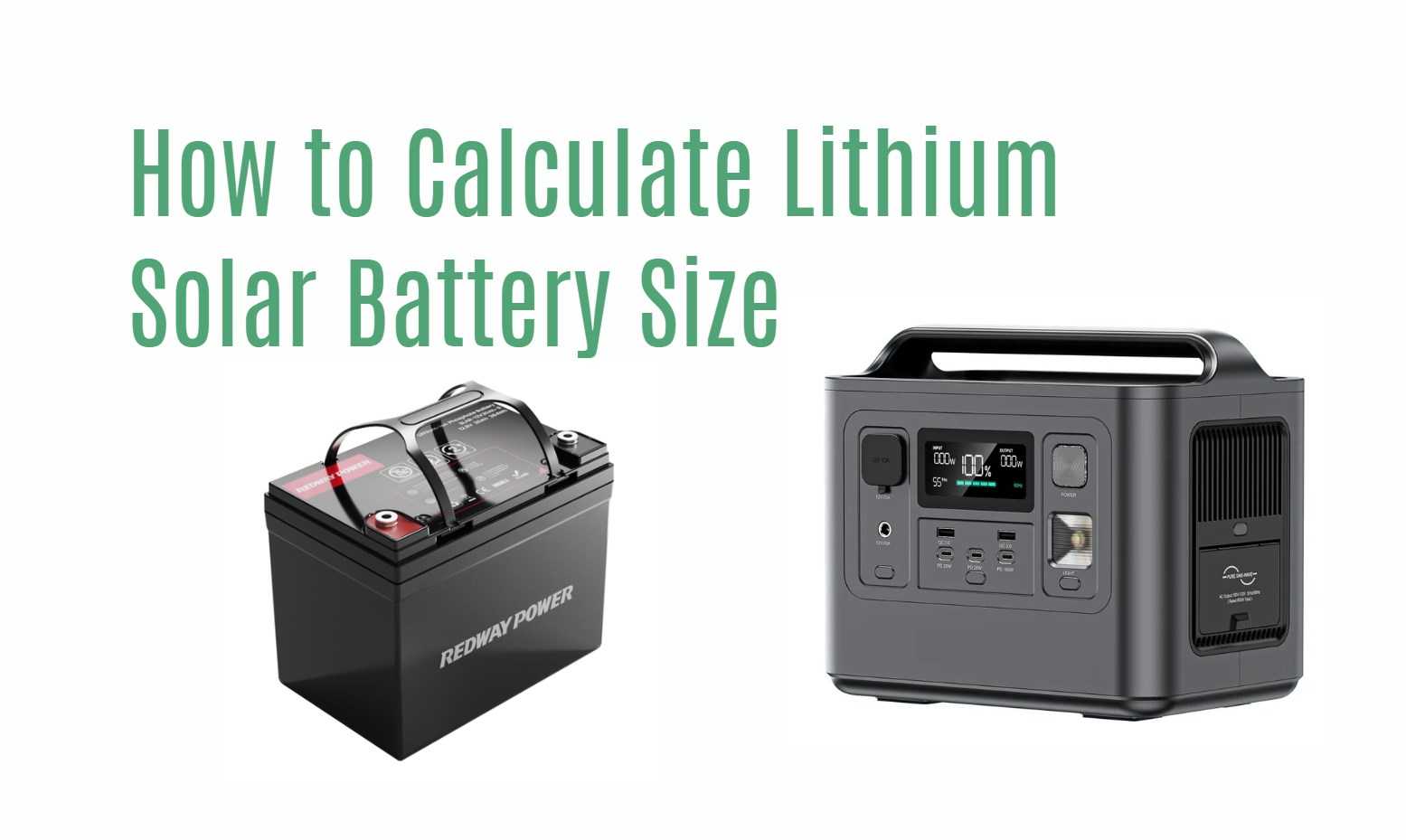- Determine your daily energy consumption.
- Assess the number of backup days you require.
- Consider the depth of discharge (DOD) percentage and the annual correction factor.
- Use the formula: Battery capacity (Ah) = Daily consumption (Ah) x Backup days x Annual correction factor / DOD (%).
What is a Lithium Solar Battery?
- Higher Energy Density and Longer Lifespan: Lithium solar batteries offer higher energy density, allowing them to store more energy in a compact size. They also have a longer lifespan compared to other battery types, making them a reliable and cost-effective choice for solar energy storage.
- Faster Charging and Deeper Depth of Discharge: Lithium solar batteries have faster charging capabilities, allowing them to quickly recharge using solar power. Additionally, they have a deeper depth of discharge, meaning they can utilize a higher percentage of their capacity before needing to be recharged.
- Superior Performance in Solar Applications: Lithium solar batteries are specifically designed for solar power systems. They are optimized to efficiently store and release energy generated by solar panels, ensuring maximum utilization and performance.
A lithium solar battery, also known as a Li-ion battery or LIB, uses lithium ions in an electrolyte for energy storage. These batteries are celebrated for their high energy density, lightweight design, and quick recharging capabilities. They are extensively used in various applications, including portable electronics, electric vehicles, and solar energy systems, due to their efficiency and eco-friendliness.
How Lithium Solar Batteries Work
- Chemical Reaction: Lithium solar batteries operate through a chemical reaction that involves the movement of lithium ions. This reaction allows the batteries to store and release energy efficiently.
- Charging Process: During charging, lithium ions migrate from the cathode (positive electrode) to the anode (negative electrode) through the electrolyte. This movement creates a flow of electrons, generating an electrical current.
- Discharging Process: When the battery is discharging, the process reverses. Lithium ions move from the anode to the cathode, resulting in the release of stored energy in the form of electrical power.
- Reliable Energy Storage: By utilizing this chemical reaction, lithium solar batteries provide a dependable and sustainable energy storage solution for solar power systems. They can store excess solar energy during periods of high generation and release it when needed, ensuring a continuous and reliable power supply.
Calculating the Size of a Lithium Solar Battery
- Determine your daily energy consumption in kilowatt hours or amp hours.
- Assess the number of backup days you require.
- Consider the depth of discharge (DOD) percentage.
- Use the formula: Battery capacity = Daily consumption x Backup days / DOD.
Convert your total daily power requirement into kilowatt-hours (kWh) to match it with the battery capacity. For example, if your devices consume 1,000 watts for five hours, you would need a 5 kWh battery.
Here’s the formula to calculate battery capacity: Battery Capacity (kWh)=(Total Wattage of Devices (W)1000)×Daily Usage HoursBattery Capacity (kWh)=(1000Total Wattage of Devices (W))×Daily Usage Hours
Benefits of Using Lithium Solar Batteries
Lithium solar batteries provide several advantages over traditional lead-acid batteries:
- Higher efficiency in converting solar energy into stored energy.
- Longer lifespan, often exceeding 10 years.
- Lower maintenance requirements and enhanced safety features.
Disadvantages to Consider
Despite their many benefits, lithium solar batteries also have some drawbacks:
- A higher initial cost compared to lead-acid batteries.
- The need for precise charging techniques to avoid battery damage.
- A potentially shorter lifespan depending on usage and maintenance.
Choosing the Right Lithium Solar Battery for Your Home
When selecting the appropriate battery, consider the following factors:
- The size of your home and its daily power consumption.
- The number of daily sunlight hours and your geographical location.
- The desired autonomy period during power outages.
Calculate your home’s daily energy needs in kWh and the storage capacity based on the autonomy days you want to achieve to determine the optimal battery size.
Conclusion
Selecting the correct size of a lithium solar battery is crucial for ensuring the best performance and efficiency of your solar energy system. By following this comprehensive guide, you can make an informed decision that aligns with your specific energy requirements and environmental objectives.





